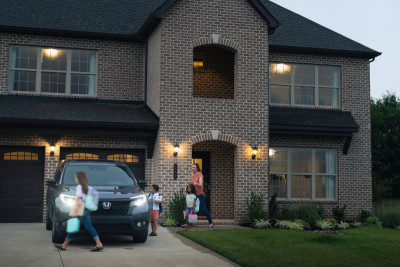When researching or discussing insurance, there can be a lot of specific language used that you may not be familiar with, especially if you’re considering insurance for the first time. On the LearnFirst blog, we strive to make topics easy to understand so you can stay informed. That’s why we’ve made this glossary of insurance definitions just for you. Read more for a breakdown of the common words you’re likely to come across.
A-G
Actual cash value: The replacement cost of a home minus the home's depreciation or decrease in value.
Assets: Items you own that hold financial value including recreational vehicles, houses, land, cash and more.
At-fault: A situation where one driver is considered the one responsible for an accident.
Beneficiary: A beneficiary in insurance terms is typically the designated person who will receive the death benefit from your life insurance policy in the event of your passing.
Claim: A request to the insurance provider for payment for damage repairs or loss covered by the insurance policy.
Collision: Coverage that pays toward the repair or replacement of your vehicle in the event of an accident, regardless of who’s at fault.
Comprehensive: Coverage if your vehicle is damaged for reasons other than an accident, such as vandalism, theft, fire, hail, flooding or hitting an animal.
Deductible: The amount you are required to pay before your insurance company will cover the costs per your insurance policy.

H-P
Hazard: Something that increases the likelihood of an accident. Examples: A dead tree in your yard that could fall on your home or vehicle, leaving a candle unattended in your home, etc.
Liability: Coverage that pays towards damages to another's property or injuries to another person.
Named Peril Policy: An insurance policy that will only provide insurance coverage on losses due to particular perils or damages that are specifically named in the insurance policy.
No-fault: Depending on the state, when no driver is considered responsible for an accident.
Open Peril Policy: An insurance policy that covers all perils except perils that are specifically excluded in the insurance policy.
Peril: An event causing any loss that is direct, sudden and accidental.
Personal property: All property not considered real property that can be moved, such as vehicles, furniture, jewelry, etc.
Premium: The amount you pay for insurance coverage.
Policy: The contract you have with your insurance company, detailing and confirming what is covered and what is not.

Q-Z
Quote: An estimate of the premium amount required for a policy by the insurance company.
Rider: Protection added to a policy for items or property in case theft or covered perils cause the loss of or damage to these valuables. Can also be called an endorsement.
Risk: The possibility of a loss to the covered item (your home, vehicle, boat, etc.).
Real Property: Land and immovable, permanent fixtures on it such as a house, garage, barn, fence, etc.
Renewal: When the term period of your policy ends, it then needs to be adjusted or its term period extended to continue coverage.
Replacement Cost: The cash amount needed to repair or replace your home using the same materials and quality but paying for those materials using today's market value.
And there you have it! Insurance doesn’t have to be hard to understand. We hope this glossary is helpful to you now and in the future when you are considering different insurance policies and coverage.